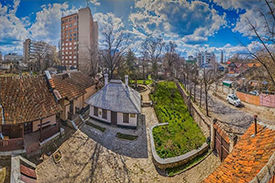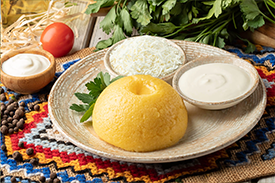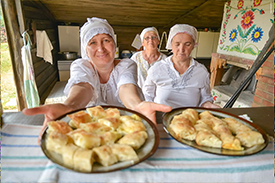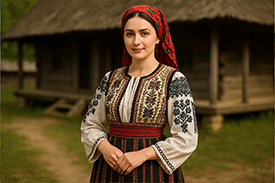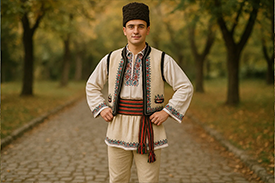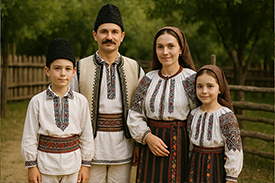Traditional Moldova Instrument
______________________________
Cobza
Children Story
THE STORY OF COBI
Author: Rafael Rivas Torrijos
In a village by the Prut River in Moldova, lived Cobi, a cobza with ten strings—eight arranged in four pairs and two loose—as it is traditional for this Moldovan instrument. Although the melody flowed through its twin strings, Cobi felt incomplete: three of those pairs were missing, and her music had lost part of its voice.
Every morning, Ana tenderly held her: "Your song is still special, Cobi." And the cobza, despite her sadness, began the day with a ray of hope.
One day, the Day of Cultures was being celebrated in the square: there was music from Moldova, Romania, Romani tradition and neighboring countries. Representatives of each community played their instruments and sang their songs. Ana brought Cobi to participate.
Upon arrival, Cobi felt shy and afraid: "Without my three pairs of strings, I won't be able to play well," she whispered. But Ana responded with a hug:
With respect, we will listen to every note. Your effort is also part of the music.
Ionel, a Romani musician playing a small double bass, approached. He looked at her and smiled:
 I think I can help you. My grandmother had extra strings from other instruments; maybe some will help.
I think I can help you. My grandmother had extra strings from other instruments; maybe some will help.Ionel took three pairs of strings out of his bag. Each pair was different: one was made of shiny metal, the second of fine gut, and the last of catgut (animal gut). Ana and Ionel respected the value of each origin:
"Each string comes from a different tradition," Ionel explained, "but together they can make a new melody flourish. That's interculturality: learning that something strong and beautiful grows from different roots."
With careful hands, Ionel placed each pair of strings, carefully tuning each twin set. Cobi noticed how each pair vibrated in unison, as if two seeds planted together sprouted stronger. When they placed the last pair, adding up to ten traditional strings, Cobi felt his wooden heart fill with harmony: the music became full and vibrant again.
It was time to play. Together with Ana and Ionel, the cobza began to play: some soft notes, others were bright, others were deep... The audience applauded. Suddenly, upon hearing her song, other musicians joined in: a Romanian violinist, a Moldovan flutist, and a Romani percussionist. All respecting the space and the value of the cobza.
The music became a collective embrace: different rhythms, melodies, stories, intertwined in a single song.
At the end, Ana said:
Thank you, Cobi. Thank you, Ionel. Thank you to all cultures for sharing. Today we experienced the friendship that is born from respect and diversity.
Cobi beamed with happiness, the new strings vibrating with pride. And Cobi knew that, even though those strings came from other places, together they were able to tell greater stories.
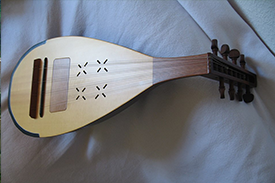
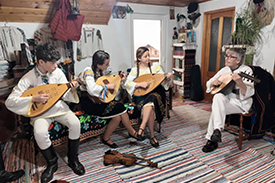
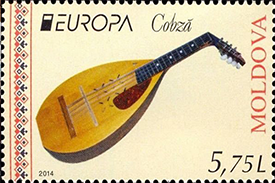
Nature
Architecture
To know more about...follow the link
To know more about...follow the link
To know more about...follow the link
Food
To know more about...follow the link
To know more about...follow the link
To know more about...follow the link
Traditional Dresses








